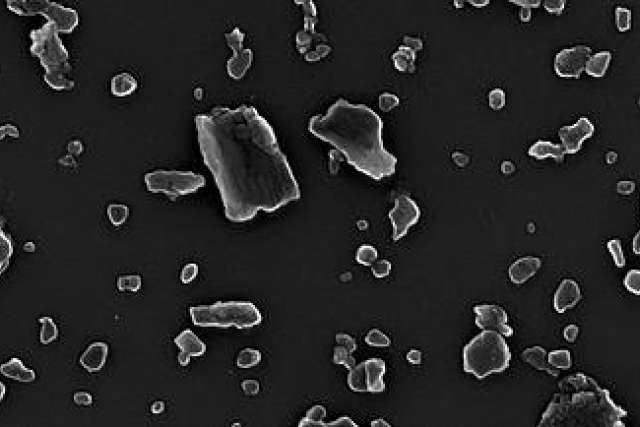Investigators from UCLA's Jonsson Cancer Center are teaming up with researchers from the California Institute of Technology, the UCLA Institute for Molecular Medicine (IMED) and the Institute for Systems Biology (ISB) in Seattle to develop new technologies for early detection and classification of cancers using leading-edge nanotechnology, systems biology and molecular imaging.
The team effort, the Nanosystems Biology Cancer Center at Caltech (NSBCC), is funded through an $18-million, five-year grant from the National Cancer Institute with Caltech's Jim Heath as principal investigator and UCLA's Michael Phelps and the ISB's Lee Hood as co-principal investigators. The grant was awarded Oct. 3.
"NSBCC collaborators at Caltech, ISB and UCLA have formed an alliance to develop technologies that will produce a paradigm shift in the understanding of the fundamental molecular mechanisms of cancer," said Phelps, Norton Simon Professor, chairman of the UCLA Molecular and Medical Pharmacology Department and director of the IMED. "New nanotechnologies and molecular imaging biomarkers will be developed to define how cells are re-programmed from mutated genes and proteins to progressively gain and loose functions that result in cancer. And from this, new molecular diagnostic technologies will be developed to provide this information for guiding the discovery of new drugs that can drive cancer cells back toward normal function or terminate them."
The $18-million grant is part of an overall effort by the National Cancer Institute to establish seven national centers of cancer nanotechnology excellence. Grants awarded Oct. 3 totaled $26.3 million and are part of the cancer institute's $144.3-million, five-year initiative to support nanotechnology research applied to cancer.
NSBCC researchers will develop technologies to record the DNA and protein signatures of various stages of cancer through molecular analysis of blood and tissue, in combination with molecular imaging in patients with positron emission tomography (PET), which was developed by Phelps.
The combination of these technologies will provide new molecular diagnostic tests to detect cancers, monitor their progression, guide the discovery and selection of appropriate therapies and predict response to therapy, individualized to each patient. Researchers also hope to use nanotechnology to boost a patient's immune system so it can better fight cancer, identify biomarkers that indicate the health of organs such as the prostate, ovaries and breast as model approaches to all cancers.
Judith C. Gasson, director of the Jonsson Cancer Center and a professor of medicine and biological chemistry, said this partnership between three renowned research institutions will help advance cancer detection and treatment.
"Science is changing from the way it was a couple of decades ago, with an individual working alone in a lab," Gasson said. "This is a time of extraordinary opportunity to have an impact in cancer prevention, diagnosis and treatment. Collaborations such as this will lead us to the next generation of important advances in cancer."
Cancer Center Scientists Team with Other Researchers on Nanotechnology Project

Share:


